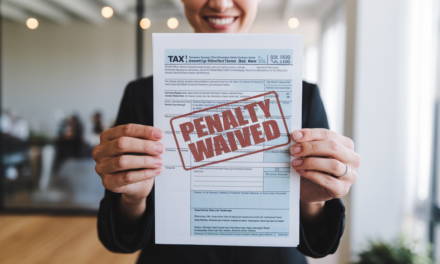Are you incurring tax liabilities and considering the consequences? Don’t let misinformation cloud your judgment. Let’s dispel some common misconceptions and shine some light on the fact that we owe money to the Internal Revenue Service (IRS).
Myth 1: “I can avoid unnecessary taxes.”
Fact: The IRS uses rigorous procedures to detect tax evasion. Ignoring tax obligations can result in penalties, interest, fees, and even legal action.
Myth 2: “I don’t have to pay all of my taxes; I can just fix them.”
Fact: While the IRS offers a variety of payment plans including one-time savings agreements and complex conditions, the final deal is based on your current wealth, income and expenses
Myth 3: “Fixing tax debt is impossible.”
Fact: The IRS offers an Offer in Compromise (OIC) program, which allows eligible taxpayers to settle their debts for less than the total amount owed. However, there are strict eligibility criteria, and it is advisable to seek the help of a tax professional.
Myth 4: “Bankruptcy clears my tax debts.”
Fact: A bank can help with some expenses, but it does not eliminate taxes. Consult with a tax professional to explore your options.
Feeling overwhelmed by the tax bill? You’re not alone. Many people have misconceptions about the IRS and how to handle their tax obligations. Let’s bust some common myths and provide factual information to help you navigate your tax situation more efficiently.
Filing your taxes takes money. False: You can file taxes for free
Contrary to popular belief, economic hardship doesn’t exempt you from fulfilling your tax obligations. Here are some options:
- IRS Free File: If you earned $73,000 or less in 2022, you can use IRS Free File, which provides free online software from approved providers to prepare and file your federal tax returns electronically.
- Free File Fillable Forms: Available for all income levels, these online forms offer a digital way to complete your tax returns.
- Volunteer Income Tax Assistance (VITA) and Tax Counseling for the Elderly (TCE): These programs offer free tax preparation and e-filing services by IRS-certified volunteers, catering to individuals with low to moderate income, disabilities, non-English speakers, and those aged 60 or older.
April 15 is the deadline to file annual tax returns. MYTH: You can get an extension
April 15 is not always the deadline to file federal income tax returns. You can ask for an extension if needed. This year it’s April 18, 2024, and it’s an easy event to get an extension.
The extension gives you more time to pay your taxes. FALSE: The extension is the deadline for submission.
Filing for an extension gives you more time to file a tax return, rather than paying any tax due. It is important to make payments as calculated as much as possible before the original due date to avoid penalties and interest charges.
Tax preparers take all the responsibility. MYTH: You’re responsible too.
While tax professionals help navigate complex tax matters, you are ultimately responsible for the accuracy and completeness of your tax returns. Take the time to review the return and address any concerns before signing.
pay more for the best offer in the contract. MYTH: It’s a scam
Paying more money does not necessarily mean a better deal in the Offers in Compromise (OIC) process. Acceptance is based on strict criteria and your financial situation, not the amount of money offered.
Don’t be fooled by myths about tax bills and the IRS. Understanding the facts and exploring the available options is essential to effectively managing your tax situation. If you are unsure, seek the guidance of a qualified tax professional so that you can navigate the system with confidence.
In conclusion
Going through tax debts may be overwhelming, but it is vital to method the state of affairs with accurate records and a clean knowledge of your options. By debunking commonplace myths approximately tax debts and the IRS, you could make informed choices and take proactive steps to cope with your financial responsibilities.
Remember, evasion is not a feasible solution, because the IRS has robust systems in vicinity to hit upon non-compliance. Instead, recall alternatives like price plans and the Offers in Compromise application to settle your money owed responsibly. Additionally, take gain of sources like IRS Free File and volunteer assistance packages to meet your tax obligations without needless economic stress.
Ultimately, you’re accountable for the accuracy of your tax return, so evaluate it carefully and are searching for expert help if wished. By staying informed and proactive, you could navigate your tax scenario with self assurance and paintings towards a brighter financial future.






Trackbacks/Pingbacks